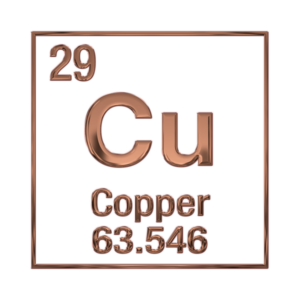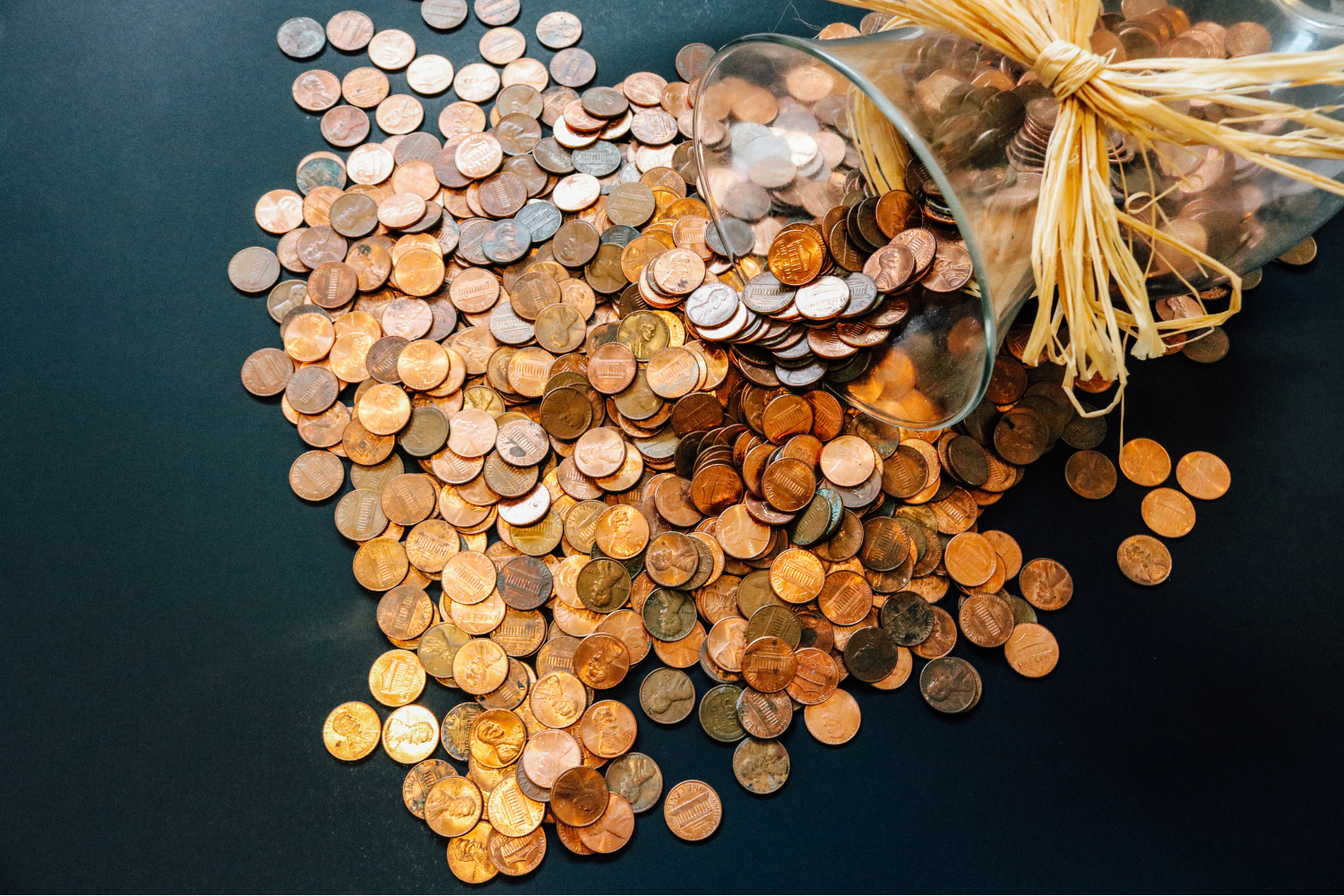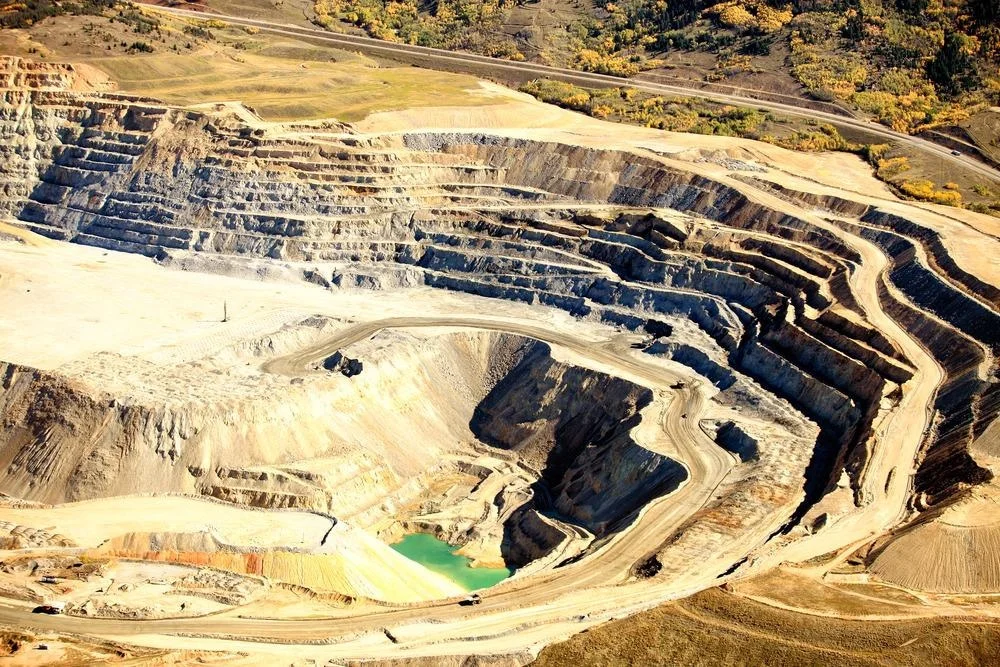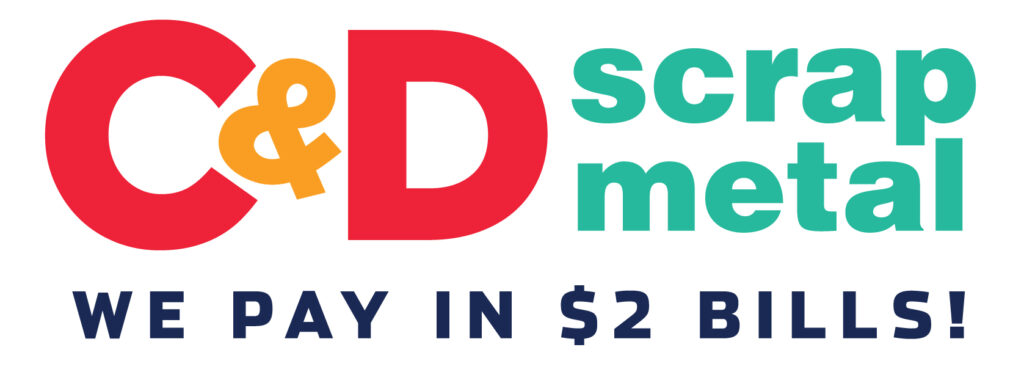
The History of Copper - Copper's Unique Beginnings
What makes copper even more intriguing is its history. Unlike most metals, copper is one of the very few that exists in its usable metallic form in nature. This means it doesn't need to be extracted from ores, making it readily available for early humans. Around 8000 BC, our ancestors began using copper in different parts of the world. It was also the first metal to undergo smelting, a process where it's melted from its ore, around 5000 BC. As time went on, people discovered that copper could be shaped into specific forms using molds, starting around 4000 BC. And it didn't stop there – around 3500 BC, humans purposefully mixed copper with another metal, tin, to create a game-changer: bronze.
What is Copper?
Copper is a remarkable metal you might have come across in your school science class. It's an element, and you can spot it on the periodic table with the symbol "Cu" and the atomic number 29. But what sets copper apart? Well, it's quite unique. It's soft, which means it's easy to bend and shape, and it's an excellent conductor, meaning it's great at transferring both heat and electricity. When you see freshly exposed copper, it has a distinct pinkish-orange hue that's quite eye-catching.


What Do We Use Copper For?
Copper finds its way into many aspects of our lives. It plays a crucial role in conducting heat and electricity, which makes it essential in various electrical systems and appliances. You'll also find copper in construction materials because of its durability and corrosion resistance. It's a key ingredient in various metal mixtures, such as sterling silver for making beautiful jewelry, cupronickel for crafting marine hardware and coins, and constantan, used in devices like strain gauges and thermocouples for measuring temperature.
Modern Uses of Copper
Copper is a versatile metal with a variety of uses due to its excellent properties like high thermal and electrical conductivity, corrosion resistance, ductility, and malleability. here are some common uses of copper and things that are built with it:
Copper's versatility and excellent properties make it an invaluable material in a wide range of applications.
What Are The Benefits of Recycling Copper
In the following section, we'll explore the myriad advantages of recycling copper, examining both its economic and environmental benefits. By embracing the practice of recycling this versatile metal, we not only contribute to a greener, more sustainable world but also unlock economic opportunities and efficiency gains that ripple through various industries. Let's delve into the positive impacts of recycling copper and how they extend beyond preserving our planet to bolstering our economies.
Here are some reasons why copper is consistently valuable:
- Industrial Importance: Copper is a critical component in various industries, including electrical, construction, and manufacturing. Its excellent electrical conductivity, heat resistance, and corrosion resistance make it indispensable in these sectors, ensuring a steady demand.
- Recyclability: Copper is highly recyclable, retaining a significant portion of its value when reused. This recycling aspect contributes to its enduring value, as it reduces the need for extensive mining and processing.
- Global Demand: The global demand for copper remains strong due to urbanization, infrastructure development, and technological advancements. This sustained demand helps maintain its value.
- Supply Dynamics: Copper mining and production are influenced by geological factors, labor issues, and environmental regulations. These factors can impact the supply side of the equation, affecting copper's value.
- Innovation: Ongoing research and technological innovations continually expand the range of applications for copper, ensuring its relevance in emerging industries and technologies.

Economic Benefits of Recycling Copper
Why toss something that's worth money? Did you know recycled copper retains up to 90% of its original value? Recycling copper reduces the need for mining, which can be expensive and labor-intensive. Moreover, the demand for recycled copper often surpasses its supply, making it a hot commodity.
Copper is generally considered a valuable metal due to its versatility and wide range of applications. Its value is relatively consistent over time, with fluctuations influenced by factors such as market demand, economic conditions, and geopolitical events.
While copper's value can experience short-term fluctuations, it is generally recognized as a valuable and versatile metal with enduring importance in various sectors, making it consistently valuable in the long run.

Environmental Benefits of Recycling Copper
Picture this scenario: Every time we decide to recycle a ton of copper, we're essentially preventing a whopping 15 tons of potential CO2 emissions from entering the atmosphere. This eye-opening fact highlights the significant environmental perks of copper recycling.
One of the immediate upsides is the reduction in environmentally disruptive mining activities. Copper mining can be a real earth-shaker, involving massive excavations, habitat disturbances, and soil woes. Opting for copper recycling means we significantly cut down on the need for these destructive mining operations, resulting in less scarred land and fewer disrupted ecosystems—a win for Mother Nature.
The Recycling Process of Copper
Recycling copper goes beyond the simple act of melting old wires and casting new molds. It's a process with intriguing intricacies. Eager to unravel the details? Let's dive in and break it down for you.
Recycling copper involves a series of carefully orchestrated steps, starting with the collection and sorting of copper-containing materials. These materials, ranging from electrical wires to plumbing fixtures, are then cleaned, shredded, and processed into copper granules or sheets. The reclaimed copper is then meticulously refined to meet specific quality standards before being transformed into a wide array of products, from electrical components to architectural elements.
This intricate process not only conserves resources but also exemplifies the seamless marriage of sustainability and industrial craftsmanship.
Common Questions About Recycling Copper
Ever heard the saying, "Old is gold?" In copper's case, it's true! Old copper doesn't degrade or lose its properties, making it as good as new even after multiple recycling rounds.
Look around you. The old computer, the defunct air conditioner, even your car contains copper parts. So, next time before trashing something, think about the copper you might be wasting!
The beauty of copper is its resilience. Unlike some materials that degrade with each cycle, copper stands strong. So, the answer? A resounding YES!
Absolutely! In fact, it retains most of its original properties.
Theoretically, indefinitely. Its quality doesn't degrade over recycling cycles. Copper is 100% Recyclable!
Most do, given its value. However, it's always best to check in advance.
While you can collect it and reuse it, the recycling process requires specialized equipment. Best leave it to the professionals.
C&D Scrap Metal would love to pay you for your household copper. We have three convenient locations around the Houston area.
Contact C&D Scrap Metal at 713-862-5588.
Common items containing recyclable copper include electrical wires, plumbing pipes, household appliances, automobile radiators, and electrical components.
The price of metal fluctuates based on the global market value, but at C&D, we promise to provide you with transparent pricing through our new weighing system, which allows you to see firsthand your items being weighed. Please visit our website at www.cdscrapmetal.com to view our three conveniently-located facilities. We look forward to providing you with exceptional customer service! However if you would prefer to talk to someone directly regarding today’s pricing, please call us at (713) 862-5588.
